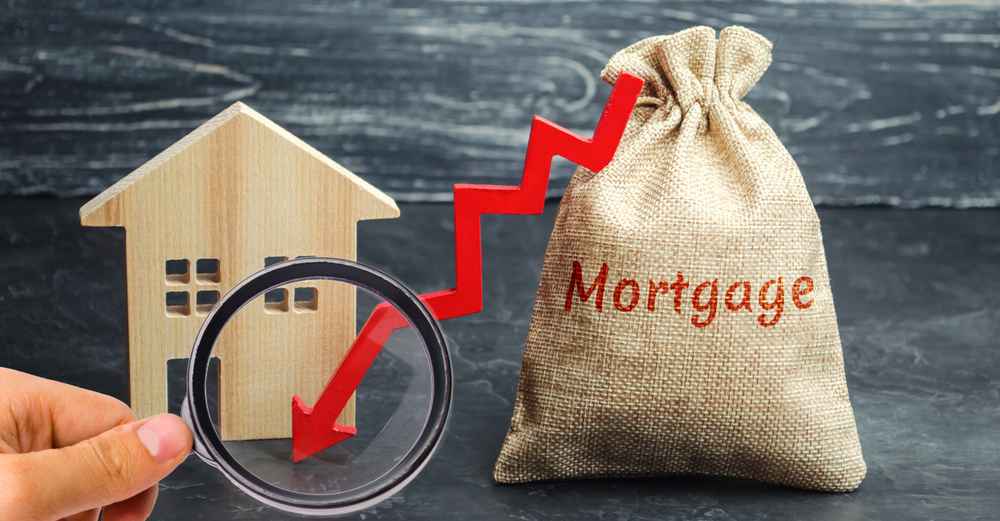How to lower your mortgage rates is one of the questions every American thinks. It takes a lot more than comparison shopping to get a great mortgage rate. There’s a lot more to it than just your credit score. In truth, the mortgage industry looks at different factors to determine what interest rate you’ll pay.
There’s a lot on the line. The factors we’ll look at below can cause mortgage rates to differ by several percentage points. The difference could result in a larger or lower monthly payment.
If you want to acquire the best mortgage rates, you must ensure you’re well-qualified. Here are some important factors that lenders consider to better your loan rate.
1- A Good Credit Score To Lower Your Mortgage Rate
Today’s mortgage lending depends on tiered pricing, which means rates are altered based on several factors. Your FICO credit score is one of the most important factors considered. Your credit score and interest rate will play a role in your qualification for a loan. All other factors are equal, high credit scores lower the mortgage rate.
According to myFICO.com, individuals with credit scores of 760 or higher are eligible for the best mortgage rates. Your interest rate rises when your credit score falls. The minimum credit score required to qualify for a mortgage is 620. However, a score of 620 will get you a rate of 5.022%, while a score of 760 or higher will get you around 3.433%.
2- Income Stability And Employment
Lenders prefer people who have had consistent employment for at least the previous two years. Long spells of unemployment, as well as a record of diminishing earnings, will affect your application.
When it comes to self-employment income, lenders are usually stringent. They will ask you to document your business income using tax returns for the last two years. They’ll tell you to fill out IRS Form 4506, which allows them to get a transcript of your returns. Income stability is vital to lower your mortgage rate.
3- A Good Debt-to-Income Ratio To Lower Your Mortgage Rates
There are two types of debt-to-income ratios, generally known as DTIs. Dividing your monthly income by the sum of your monthly minimum debt payments is used to calculate the DTI. The front-end ratio considers your home bills and ignores any other loans. Banks have always preferred a front-end ratio of less than 28% and a back-end ratio of no more than 36%. These ratios can go higher depending on the type of mortgage and other considerations.
For an FHA loan, the maximum back-end DTI is 43 per cent. However, if you meet specific conditions, you may have some flexibility. Such as, if you are strong in other aspects of your application, the lender may allow you to exceed the limit. A lower DTI may lead to a reduced interest rate.
4- Down Payment
To secure the best mortgage rates, you’ll need a minimum down payment of 20% of the home’s buying price. Risk Audit is the basis of mortgages. A loan 5% down is a greater risk than one with 20% down. Therefore, the interest rate will be higher.
But that isn’t the only incentive to put aside 20% of your income. You will have to pay PMI, or private mortgage insurance if your down payment is less than 20% of the buying price. Mortgage insurance will effectively add .62 per cent to your monthly with a 5% down payment. On a $200,000 mortgage, this translates to a $1,240 annual premium, which adds an extra $103.33 to your monthly mortgage payment.
5- Cash Reserves To Lower Your Mortgage Rates
Mortgage sectors define cash reserves as the number of months’ worth of house payments saved in cash. Reserves include money saved in savings accounts, money market funds, or certificates of deposit. However, Retirement funds may be left out because these withdraw after paying the taxes.
The minimum for cash reserves is two months, which means you must have liquid cash to meet your mortgage payment for the next 60 days. The cash reserve requirement may increase on higher-risk mortgages.
Regentology For Finding You The Best Mortgage Rate Possible
Regentology connects you with the best loan officers in your area to assist you with the best possible rates. Finding the appropriate mortgage provider may be difficult, and many can surprise you with costs after closing. At every step of the journey, our network of loan officers will be forthright and honest. A team of specialists will assist you along the process, allowing you to make better decisions. Our local mortgage partners at Regentology will dedicatedly assist you at every step of the journey. We’ll help you chart a clear route from discovering the perfect property to obtaining the best loan for your needs.


